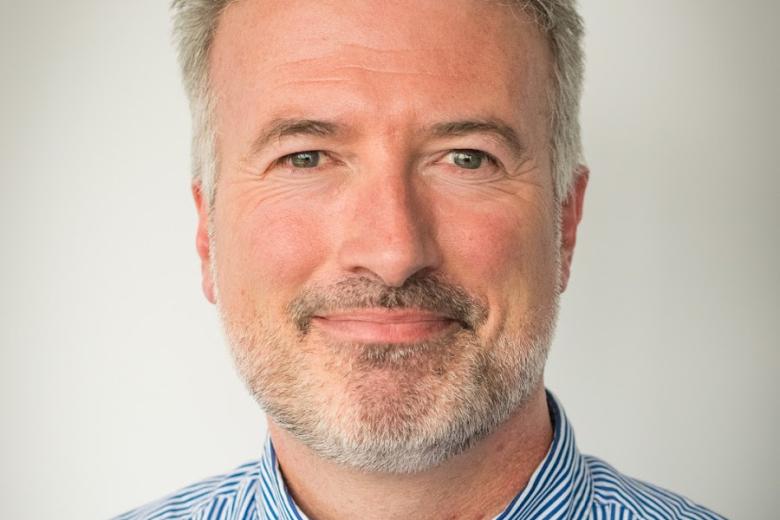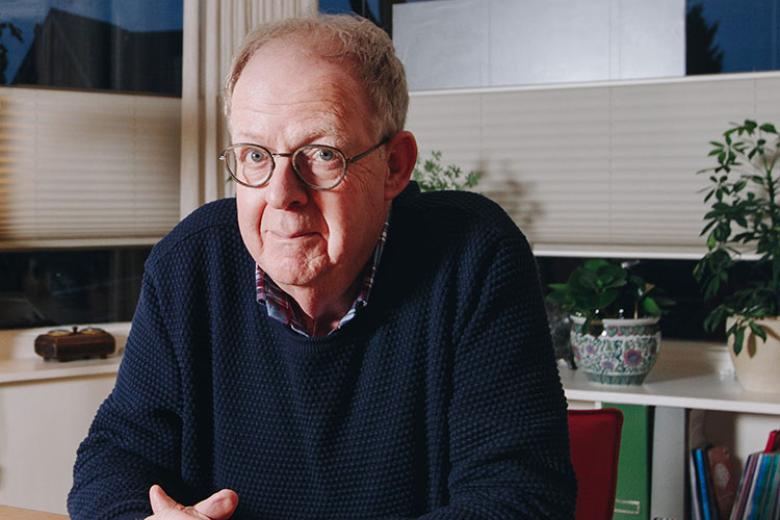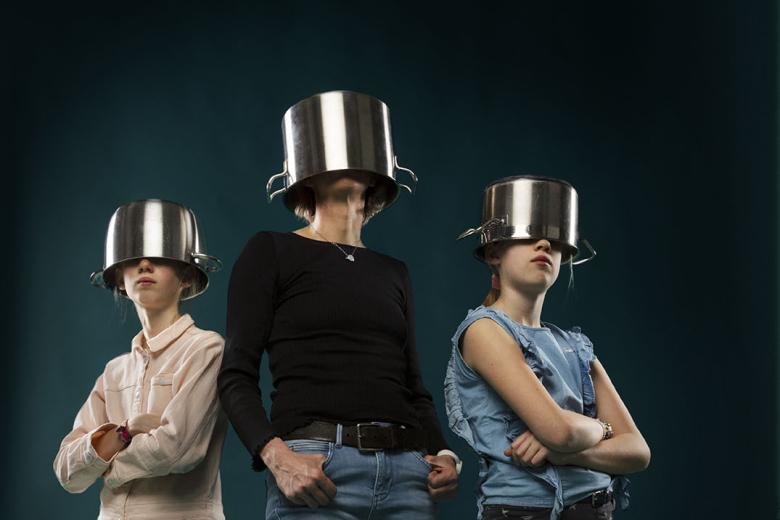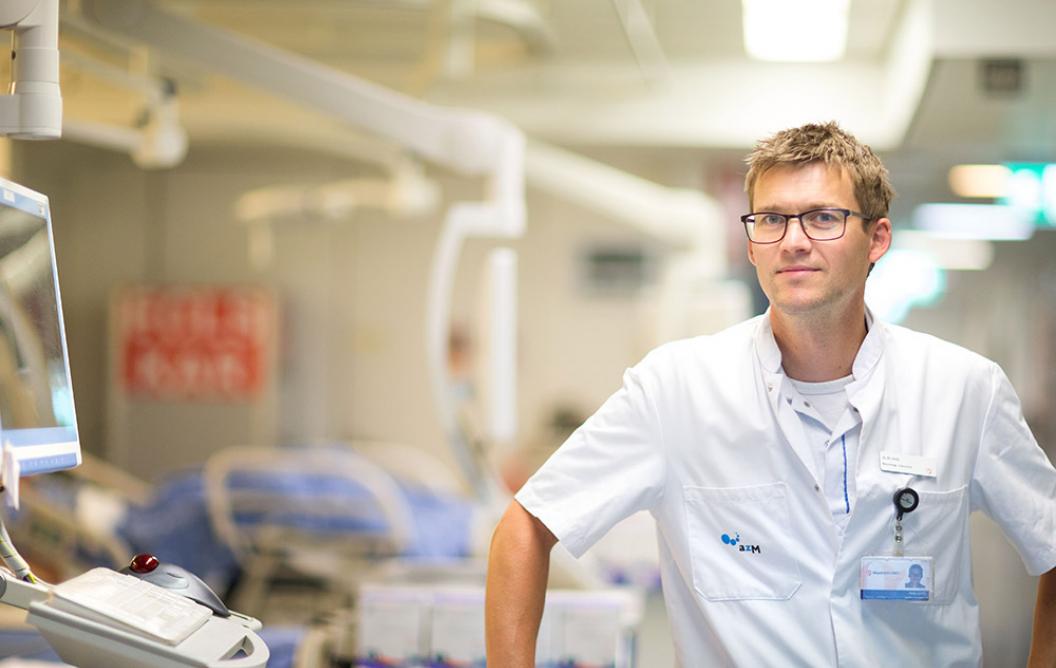The brain doctor’s battle
Rigorous research requires a great deal of money – usually more than the government, investors or financiers are willing to offer. Marcel Aries, neurologist and intensivist at the Maastricht UMC+, has taken matters into his own hands. “I’m working with colleagues on a new line of research that focuses on measuring and ‘adjusting’ brain functions. It’s strange that cars today have hundreds of different sensors, and yet we use only a single sensor to monitor a bruised brain.” To support this research on how brain cells recover from injury and other research, Aries founded the Brain Battle Fund.
“The human body has a range of protection mechanisms that supply the brain with blood and oxygen. If these mechanisms fail – for example, due to brain damage caused by an accident, haemorrhage or inflammation – all sorts of alarm bells go off. As a result, the brain receives too little blood and oxygen, which means cells die. The new research line shows how we can measure this and make timely adjustments. I’m convinced this will save brain cells”, Aries says enthusiastically. “And every cell counts. This way we limit the damage, which makes it easier for patients to return to normal life. It’s important for family members too; brain damage hits them just as hard as it does the patient.”
Roundabout route to Maastricht
Aries once aspired to be a trauma surgeon. “It’d be an exciting profession, full of accidents, trauma helicopters, lightning-fast decisions. But initially I missed out on a place in medicine at university. I spent a year doing veterinary medicine, and was offered a place in medicine the following year. I met my wife and enjoyed student life. But trauma surgery wasn’t my thing; turns out I prefer to solve complex puzzles at a slightly slower pace. So I went looking for a new specialisation, and neurology, a field that deals with the brain, muscles and nerves, appealed to me.”
After studying neurology Aries wanted to specialise further, and decided to train as an intensivist. “When I graduated the Maastricht UMC+ was the only university hospital in the Netherlands that didn’t have a neurologist-intensivist.” And so, following extended periods in Ghent, Nijmegen, Cambridge and Groningen, the Boxtel native wound up in Maastricht, where he lives with his wife (also a doctor) and three children.
Emotional moments
“My role is to look after patients in intensive care, together with colleagues: intensivists with different backgrounds, junior doctors, nurses and so on. We also have a lot of contact with patients’ families.” One of the team’s responsibilities is to inform family members of patient outcomes, be they good or bad. Aries never gets used to breaking bad news to his patients’ loved ones. “It’s horrible to have to tell a child that their mother or father won’t make it. Or vice versa: telling parents they’ll have to say goodbye to their son or daughter. Those are always very sad and emotional moments – and as the doctor you still have to move on to the next patient. That’s a strange feeling. Humour can help, and fortunately, there’s always room for that in our team. I come across a striking number of people in this field with the same dry humour as me. It helps you put things into perspective.”
Taking the initiative
Through the Brain Battle Fund, Aries and his team are taking extra steps to support patients and their loved ones. “We have organised events like an art auction, the proceeds of which go to our fund. Or a round-table discussion with top athletes with brain damage; we can all learn from their perseverance.” His own family contributes in any way they can. “My father organises the publicity for our events, my mother does the administration and my youngest daughter invites her teachers.”
The last crowdfunding campaign went towards ongoing research into recovery from brain damage. To give the campaign an additional boost, team member Jeannette Tas ran the Meerssen half marathon last October. “The idea is that the body of a patient with brain damage in intensive care is making the same sort of physical effort it would make if it were running a half marathon – and that for days or weeks in a row.”
If Aries has anything to say about it, many more initiatives will follow. “My goal is to increase awareness of brain damage so that all skiers, cyclists and kids on bikes wear helmets as a matter of course. Every donation counts.”
Also read
-
Empowering Smallholder Farmers in the Data Economy: Unlocking Opportunities and Overcoming Obstacles
Frederik Claasen, the head of policy at our partner organisation Solidaridad Network on the opportunities and obstacles facing smallholder farmers in their data ecosystems.
-
The last 'nerve doctor' in the Netherlands
Frans Verhey, professor of Geriatric Psychiatry and Neuropsychiatry is proud of what the Limburg Alzheimer’s Centre has achieved and of its team, which works tirelessly to improve the quality of life of people with Alzheimer’s. “Alzheimer’s tends to be seen as a horrible, deadly brain disease that...
-
The scientist, the chef and her passions
Anne Roefs was awarded a Vici grant of €1.5 million. The professor of Psychology and Neuroscience of Abnormal Eating, was tossing up between a career as a scientist or a top chef.
